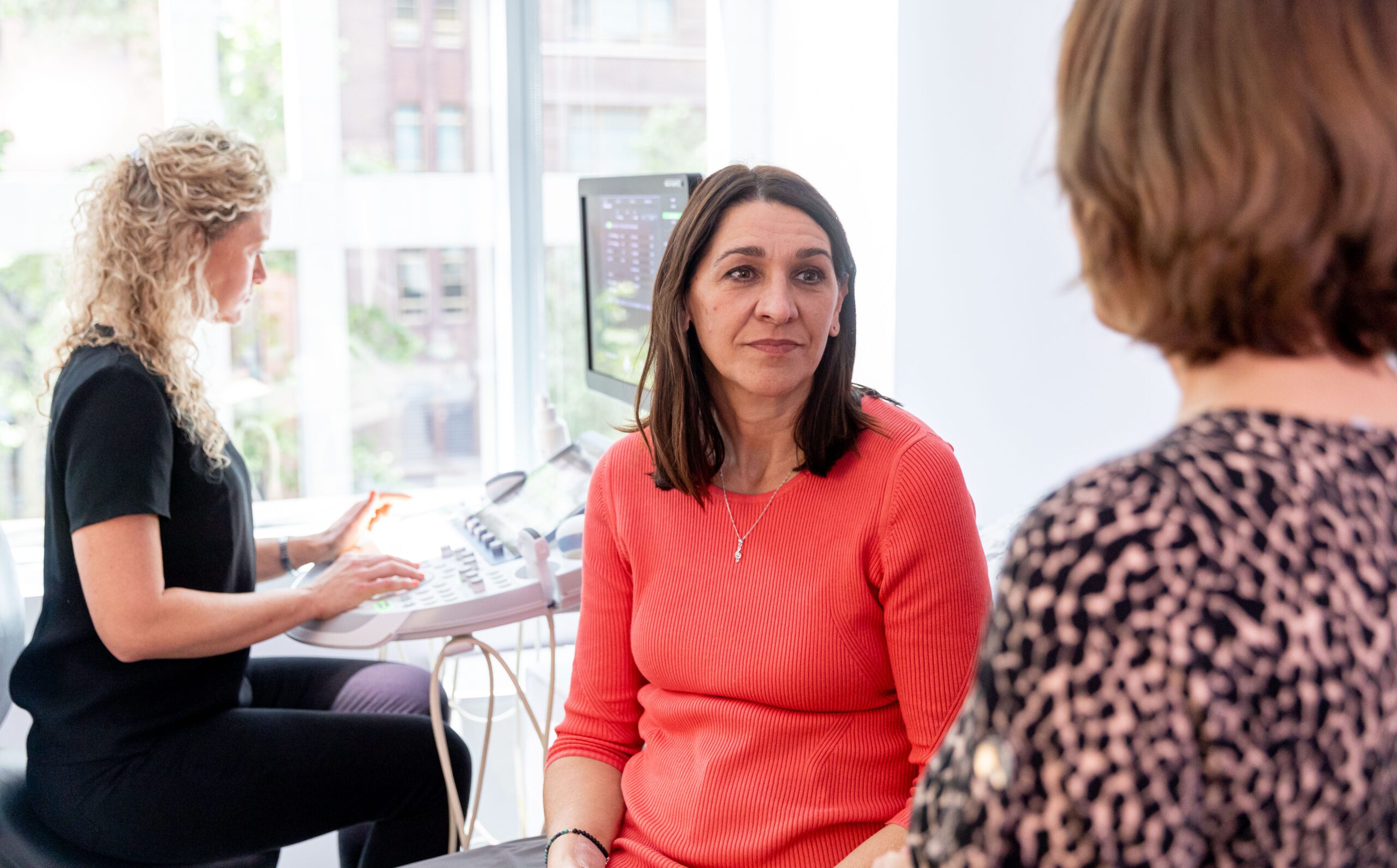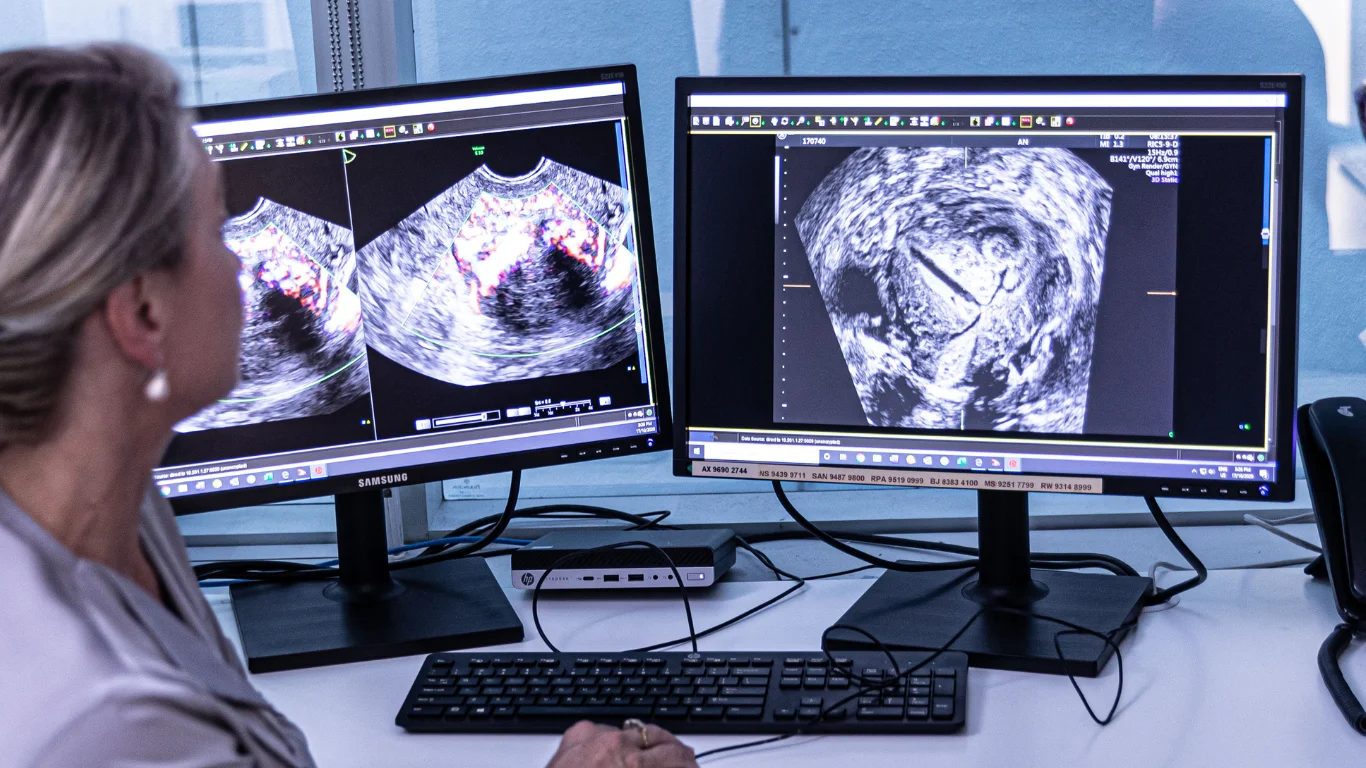How big is my baby at 9 weeks?
Currently your baby is around the size of an olive, measuring 25 mm from the tip of the head to its bottom. In the first trimester, we call this measured length of your baby the “crown rump length”. The crown rump length is used for consistency as your baby’s legs can be either straight or bent at the knees and hips at any given time.
Baby’s development at 9 weeks
At this stage of your pregnancy your baby is growing very rapidly. At 9 weeks gestation your baby’s shape is now more recognizable. Their hands are almost fully formed, and they also have well-formed feet. Although the head is large compared to the rest of the body, it is a recognizable shape and eyelids and ears are now forming. At 9 weeks we often start to see baby’s movements on ultrasound. These movements are mostly just in the torso but can still clearly be seen on ultrasound. The heartbeat is now very regular, and the four chambers of the heart are well-formed. Brain development will continue well into the third trimester.
The placenta takes over
At 9 weeks the placenta is getting bigger. It has now taken over the important job of producing the pregnancy hormones that your baby will need to grow and develop.
Changes to your body at 9 weeks gestation
At 9 weeks gestation your body is also changing significantly. One of the key changes is the increase in blood cells and fluid in your bloodstream. Your blood vessels will expand to allow for this, and this expansion can lead to headaches in some women. It is also common to have low blood pressure due to your blood vessels dilating, and this can lead to an increased chance of fainting.
Why do I need to go to the toilet so often?
You’ve probably noticed that you need to make much more frequent toilet stops. Your kidneys are beginning to work much harder at this stage of your pregnancy and may filter up to 45% more blood by 9 weeks. This usually results in frequent toilet stops. On the other hand, one of the major hormones of pregnancy, progesterone, can slow the bowel, often leading to constipation. Constipation can be worse if morning sickness means you’re eating less than usual. If you are experiencing these symptoms eating a fibre rich diet and drinking plenty of water can help.
With all these changes, it is no wonder you may feel tired. Fortunately, for most women the deep exhaustion of the first trimester should pass by 12-14 weeks as hormone levels settle.
If you need to know more about how your body changes and what experiences to expect during pregnancy, please visit our blog for resources. You may also book a consultation with our expert gynaecologists and obstetricians to learn more.






